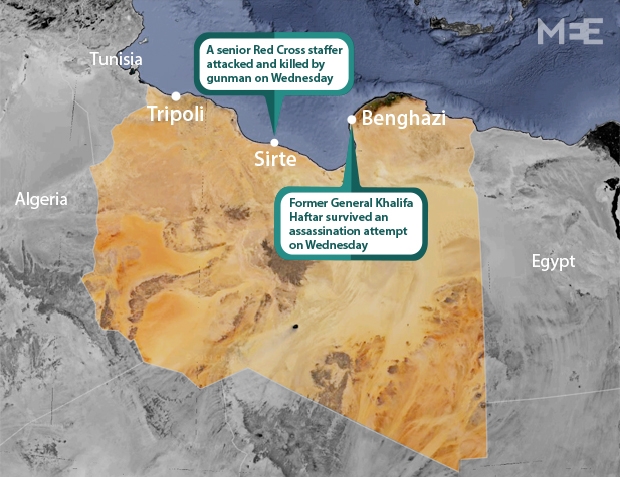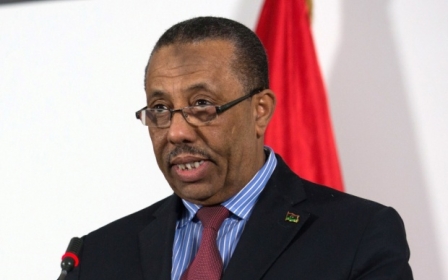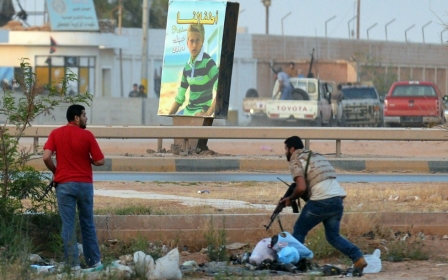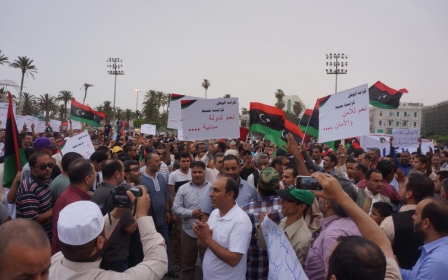Airstrikes reported in Benghazi as rogue general pledges reprisal
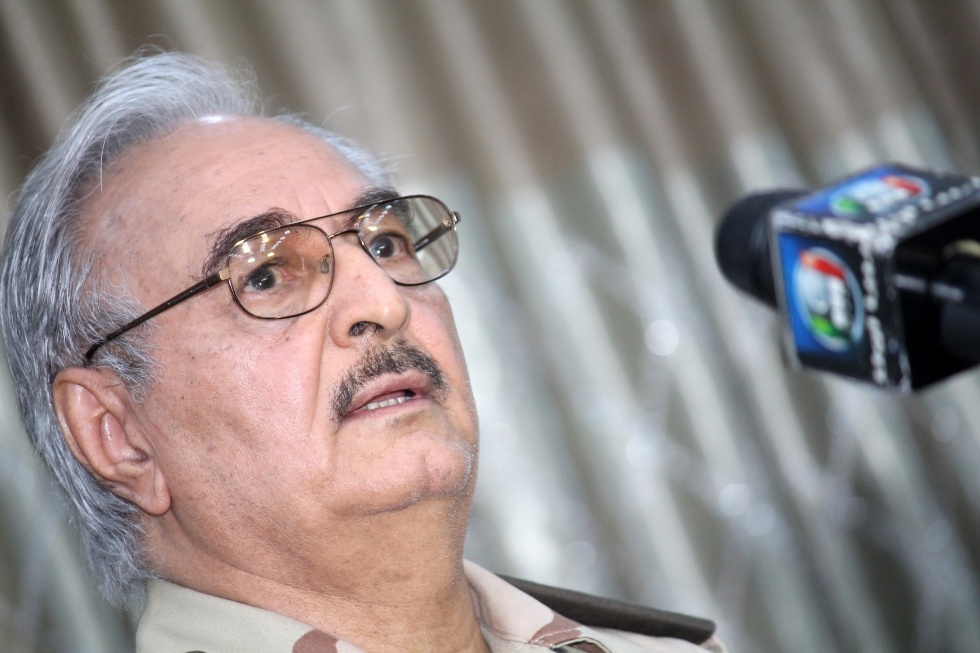
Reports of airstrikes in Benghazi, the focal point of a rogue ex-general's offensive against Islamist militias, are emerging.
Details of the strikes were few late Wednesday, but Libya's Ahrar TV reported that aircraft loyal to former general Khalifa Haftar launched the strikes in the country's east. The strikes come hours after Haftar survived a suicide bombing and pledged to retaliate.
Following Wednesday's assasination attempt near Benghazi, Haftar said he would retaliate to the attempt on his life with a "response stronger than theirs."
"Those terrorist killers have not and will not achieve any of their targets," he told Libyan radio al-Marj. "They will pay a dear price."
London-based Libyan academic researcher Mohamed Eljarh said he was not surprised when he received text messages from several sources on Wednesday night, alerting him to the strikes.
"[Haftar] vowed that the response will be merciless and it will be quick," Eljarh said. "Basically, he will attack and will attack again and attack again. That's how I think it will go for the next few weeks."
The violence, which underscores the almost total lack of security in the North African state, followed an overnight rocket attack on the government's offices in the capital, Tripoli.
Also on Wednesday, gunmen killed a senior Swiss staffer of the Red Cross in Libya.
The worker was "attacked by gunmen as he left a meeting with two colleagues" in the city of Sirte at around noon (1000 GMT), according to International Committee of the Red Cross spokesman Wolde Saugeron.
"They were headed towards their car, which wasn't marked with ICRC insignia" and the attackers shot at "point-blank" range.
"Our organisation condemns this murder."
The man, who was not immediately named, headed the agency's office in Misrata, some 200 kilometres from Sirte.
Earlier, Haftar, whose repeated deadly assaults on militias in Libya's second city Benghazi have earned him threats of reprisal, escaped a suicide bombing, one of his commanders said.
But three of his loyalists were killed in the attack on a villa outside the eastern city, the commander told AFP.
The villa, near an airport, has been serving as Haftar's command and control centre, Eljarh said.
"A suicide bomber in a vehicle packed with explosives attacked a villa where we had gathered," said General Sagr al-Jerushi, who heads the air wing Haftar has used in his attacks.
"Three of our soldiers were killed," Jerushi said, adding he himself had been "lightly wounded."
Benghazi was the cradle of the NATO-backed revolt that toppled former dictator Muammar Gaddafi in 2011 but has increasingly become a base for Islamist groups like Ansar al-Sharia that are accused by Washington of involvement in a deadly assault on the US consulate in 2012.
Ansar al-Sharia has borne the brunt of Haftar’s offensive, and has seen its bases targeted and bombed, prompting the group to threaten a string of reprisals.
It warned Haftar he could suffer the same fate as Gaddafi who was killed by rebels in October 2011.
While the US State Department has designated Ansar al-Sharia in Benghazi as a terrorist organisation, the group also plays an important social role in eastern Libya and has woven itself into the fabric of society, said Benghazi-based journalist Mary Fitzgerald this week.
"Almost everyone in Benghazi knows someone who is in Ansar al-Sharia," Fitzgerald said a Libyan source told her.
Given the Ansar al-Sharia in Benghazi's social role, the country has been divided, she said, on whether to deal with the group through mediation or violence.
"Haftar has tipped the scales on that argument, possibly irreparably," Fitzgerald said.
First attack against Haftar
It is the first attack against Haftar since he launched his offensive, dubbed "Operation Dignity," aimed at eradicating "terrorists" in Benghazi on 16 May.
Like Ansar al-Sharia, Al-Qaeda too has threatened the former general. Its North Africa affiliate - al-Qaeda in the Islamic Maghreb - labelled him an "enemy of Islam" on Sunday and urged Libyans to fight him.
Haftar spokesman Mohamed Hejazi on Wednesday blamed these groups for the attack, although none have as yet claimed responsibility.
"We hold the terrorists responsible for this attack - this sort of suicide bombing is, of course, the work of terrorists and extremists," Hejazi said.
Haftar claims his forces represent the legitimate Libyan army and has won the support of regular army units inside Benghazi, including the special forces, for his offensive.
Their latest assault, on Monday, left at least 21 people dead and 112 wounded.
Even though Haftar denies any political ambitions, the outgoing Islamist-led parliament accuses him of plotting a coup and has branded him an outlaw.
Awash with weapons
Since 2011, Libya has been awash with heavy weapons and former rebel militias control swathes of territory across the country.
As a result, the central government has struggled to impose its authority.
Haftar's campaign against the Islamists has struck a chord among the many Libyans angry at the militias, and there have been repeated street demonstrations in his support in Benghazi and Tripoli.
But he remains a figure of suspicion for many veterans of the uprising, with his US exile leading some of them to accuse him of links to the CIA, something also claimed by Gaddafi regime.
Washington has denied any role in Haftar's offensive in Benghazi.
In Tripoli, a rocket overnight hit the government's head offices, where new Prime Minister Ahmed Miitig was to hold a cabinet meeting, causing damage but no casualties, an official said.
Miitig was not in his office at the time.
Despite the attack, Miitig travelled to his offices on Wednesday to hold a meeting with his ministers, an AFP journalist said.
State buildings in Libya are regularly targeted by rival militias.
New MEE newsletter: Jerusalem Dispatch
Sign up to get the latest insights and analysis on Israel-Palestine, alongside Turkey Unpacked and other MEE newsletters
Middle East Eye delivers independent and unrivalled coverage and analysis of the Middle East, North Africa and beyond. To learn more about republishing this content and the associated fees, please fill out this form. More about MEE can be found here.


